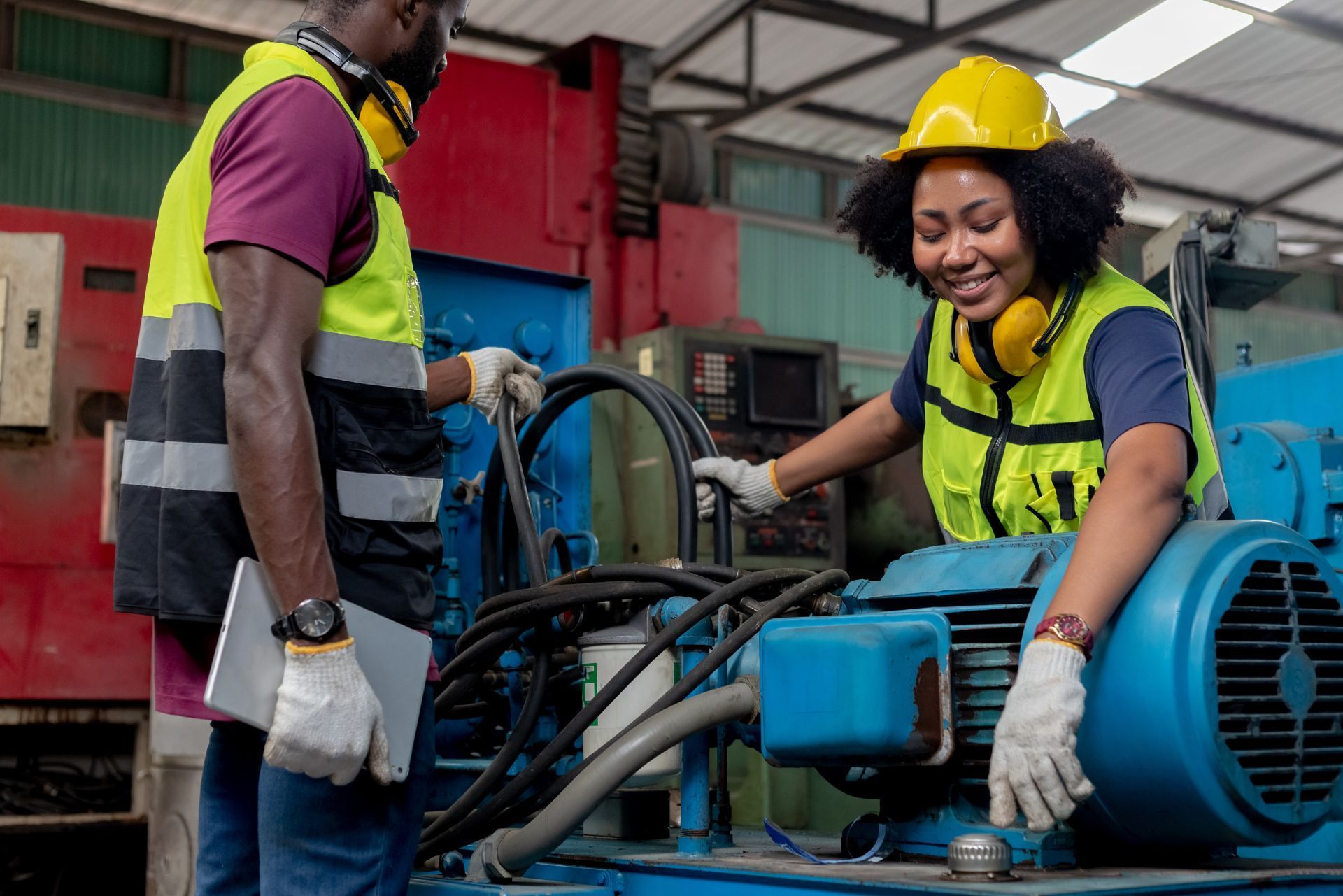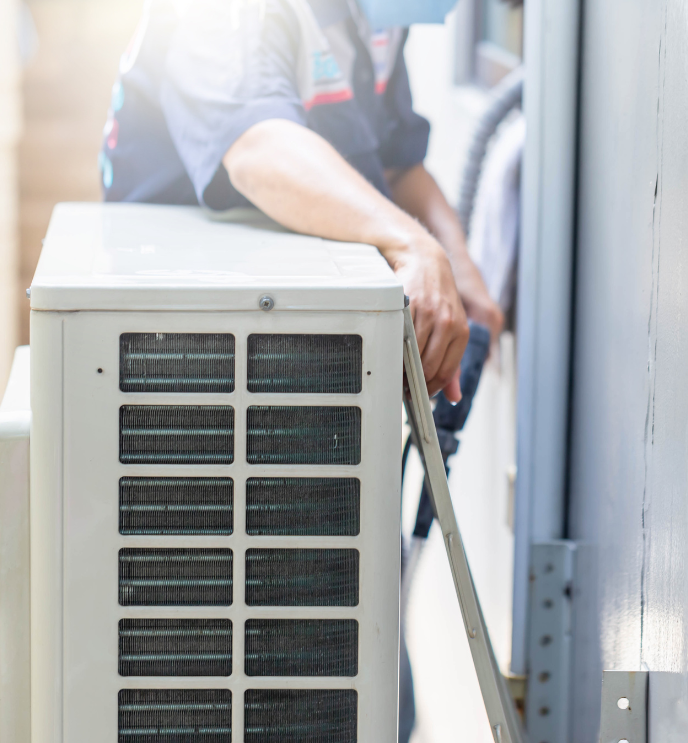Types of Contractors We Serve
Jonathan Behr
Owner of Contractor Insurance Pros by Behr Insurance Services
Index
Contact Us
Phone
Location
Simi Valley, CA 93065
The Woodlands, TX 77382
Katy, TX 77494
Generator technicians play a crucial role in ensuring that power systems function smoothly and efficiently. As professionals who work with complex machinery, they face unique risks and liabilities. To protect themselves and their businesses, obtaining the right insurance coverage is essential. This article will explore the various aspects of generator technician insurance, including its importance, types of coverage available, and tips for selecting the right policy.
Understanding the Importance of Insurance for Generator Technicians
Generator technicians often work in environments that can be hazardous. From electrical shocks to equipment failures, the risks are numerous. Having insurance not only protects technicians from financial loss but also provides peace of mind when working on various projects. This peace of mind allows technicians to focus on their work, knowing that they are safeguarded against unforeseen events that could otherwise disrupt their livelihoods.
Moreover, the nature of generator work often involves interacting with clients in their homes or businesses, which adds another layer of risk. A technician might inadvertently cause damage to a client's property while installing or repairing a generator. In such cases, having insurance can facilitate smoother resolutions, ensuring that both the technician and the client are protected and that the technician can maintain a good reputation in the industry.
Financial Protection Against Liability
One of the primary reasons generator technicians need insurance is to protect against liability claims. If a technician accidentally damages property or causes injury while working, they could be held financially responsible. Liability insurance helps cover legal costs and any settlements or judgments that may arise from such claims. This financial protection is crucial, as even a single incident can lead to substantial legal fees and compensation costs that could cripple a small business.
Additionally, liability insurance can also enhance a technician's credibility with clients. When potential customers see that a technician is insured, they are more likely to trust them with their generator installation or repair needs. This trust can lead to increased business opportunities, as clients often prefer to hire professionals who are adequately insured, knowing that they are taking the necessary precautions to protect both themselves and their property.
Compliance with Legal Requirements
In many regions, businesses are required to carry certain types of insurance. Generator technicians who operate as independent contractors or own their own businesses must ensure they meet local regulations. Failing to have the necessary insurance can result in fines or even the loss of a business license. This compliance not only protects the technician legally but also reinforces their commitment to professionalism and safety in their work practices.
Furthermore, understanding the specific insurance requirements in their area can help technicians avoid potential legal pitfalls. Some regions may require additional coverage, such as workers' compensation or commercial auto insurance if technicians use vehicles for work purposes. By staying informed and compliant, generator technicians can operate with confidence, knowing they are meeting all legal obligations while also safeguarding their business interests.

Types of Insurance Coverage for Generator Technicians
Generator technicians should consider multiple types of insurance coverage to ensure comprehensive protection. Each type of insurance addresses different risks associated with their work.
General Liability Insurance
General liability insurance is fundamental for any technician. This coverage protects against claims of bodily injury, property damage, and personal injury. For instance, if a client trips over equipment left on the job site, general liability insurance can help cover medical expenses and legal fees. Additionally, this insurance can also safeguard against claims related to advertising injuries, such as copyright infringement or defamation, which can arise if a technician promotes their services in a misleading manner or uses copyrighted material without permission.
Professional Liability Insurance
Also known as errors and omissions insurance, professional liability insurance is crucial for generator technicians who provide consulting or design services. This coverage protects against claims of negligence or inadequate work. If a client alleges that a technician's work led to a malfunction or failure, this insurance can help cover the costs of legal defense and any settlements. Furthermore, it can also cover claims related to miscommunication or failure to deliver services as promised, which can be particularly important in a field where precision and reliability are paramount.
Workers' Compensation Insurance
For technicians who employ others, workers' compensation insurance is often required by law. This coverage provides benefits to employees who suffer work-related injuries or illnesses. It covers medical expenses and lost wages, protecting both the employee and the employer from potential lawsuits. Moreover, this insurance can also include vocational rehabilitation services, helping injured workers return to their jobs or find new employment if they are unable to continue in their previous roles. This aspect not only supports the well-being of employees but also fosters a more loyal and motivated workforce, which is essential in the often physically demanding field of generator maintenance and repair.
While the above types of insurance are essential, generator technicians may also want to consider additional coverage options tailored to their specific needs.
Equipment Insurance
Generator technicians rely heavily on specialized tools and equipment. Equipment insurance covers the loss, theft, or damage of these essential items. This type of insurance ensures that technicians can quickly replace or repair equipment, minimizing downtime and financial loss. Furthermore, many insurance providers offer policies that can be customized to include coverage for specific tools, such as diagnostic equipment or portable generators, which can be particularly beneficial for those who work in diverse environments. By having this safety net in place, technicians can focus on their work without the constant worry of unexpected expenses arising from equipment failures.
Commercial Auto Insurance
Many generator technicians use vehicles to transport equipment and travel to job sites. Personal auto insurance may not cover accidents that occur while using a vehicle for business purposes. Commercial auto insurance provides coverage for vehicles used in the course of business, protecting against liability and property damage. Additionally, this type of insurance often includes coverage for cargo, ensuring that any tools or equipment being transported are protected during transit. This is particularly important for technicians who may travel long distances or work in remote areas, where the risk of accidents or theft can be higher. Having comprehensive commercial auto insurance not only safeguards the technician's assets but also enhances their professional credibility with clients.
Business Interruption Insurance
In the event of a disaster or unforeseen circumstances that halt business operations, business interruption insurance can help cover lost income. This coverage is particularly valuable for generator technicians who rely on a steady flow of projects to maintain their livelihood. It can also cover ongoing expenses, such as rent and utilities, during periods of inactivity, ensuring that the business can remain afloat until operations resume. Moreover, some policies may include additional features, such as coverage for extra expenses incurred while trying to mitigate the impact of the interruption. For example, if a technician needs to rent temporary equipment or find alternative workspace, this insurance can help offset those costs, allowing them to bounce back more quickly from disruptions and maintain their client relationships.
Choosing the Right Insurance Provider
Selecting the right insurance provider is crucial for generator technicians. The right company can make a significant difference in terms of coverage options, customer service, and claims processing.
Assessing Coverage Options
When evaluating insurance providers, it’s important to assess the coverage options they offer. Look for companies that specialize in insurance for contractors or technicians, as they are more likely to understand the unique risks associated with the profession. Compare policies to ensure they meet your specific needs. Additionally, consider the types of coverage that are essential for your work, such as liability insurance, equipment coverage, and workers' compensation. Each of these can protect you from financial setbacks due to accidents, equipment failure, or workplace injuries, making it vital to choose a provider that offers comprehensive and customizable options.
Reading Reviews and Testimonials
Before committing to an insurance provider, take the time to read reviews and testimonials from other generator technicians. This feedback can provide valuable insights into the company’s reputation, customer service, and claims handling process. Look for providers with a strong track record of supporting their clients. Online forums and professional networks can also be excellent resources for gathering opinions and experiences from peers in the industry. Engaging with other technicians can reveal which companies are known for their reliability and responsiveness, helping you make a more informed decision.
Understanding the Claims Process
The claims process can vary significantly between insurance providers. It’s essential to understand how a company handles claims, including the time it takes to process them and the level of support offered. A provider that prioritizes efficient claims handling can save technicians a lot of stress during challenging times. Furthermore, inquire about the availability of online claims submission and tracking, as these features can streamline the process and provide peace of mind. Knowing that you can easily access assistance when needed is invaluable, especially when dealing with the unexpected challenges that can arise in the field.
Evaluating Customer Support
Customer support is another critical factor to consider when choosing an insurance provider. A responsive and knowledgeable support team can make a significant difference in your experience, especially during stressful situations. Look for companies that offer multiple channels of communication, such as phone, email, and live chat, so you can reach out for assistance in the way that suits you best. Additionally, consider the availability of support during off-hours or weekends, as generator technicians often work irregular hours and may need help outside of traditional business hours.
Comparing Premiums and Deductibles
Lastly, while it’s important to find a provider with excellent coverage and support, comparing premiums and deductibles is equally essential. A lower premium might seem appealing, but it’s crucial to ensure that it doesn’t come at the cost of adequate coverage. Analyze the deductibles associated with each policy, as a higher deductible can lead to significant out-of-pocket expenses in the event of a claim. Balancing cost with comprehensive coverage will help you find an insurance provider that not only fits your budget but also protects your livelihood effectively.
The Cost of Generator Technician Insurance
The cost of insurance for generator technicians can vary widely based on several factors. Understanding these factors can help technicians budget for their insurance needs.
Factors Influencing Insurance Premiums
Several factors can influence the premiums that generator technicians pay for insurance. These include the technician’s experience, the size of the business, the types of coverage selected, and the overall risk associated with the work. For example, technicians who work with high-voltage generators may face higher premiums due to the increased risk. Additionally, the geographical location of the business can also play a significant role; areas prone to natural disasters or with higher crime rates may see elevated insurance costs. Furthermore, the presence of safety measures and training programs can positively impact premiums, as insurers often reward businesses that prioritize safety with lower rates.
Finding Affordable Coverage
While insurance is essential, it’s also important to find coverage that fits within a budget. Technicians can shop around and obtain quotes from multiple providers to compare prices. Additionally, many insurance companies offer discounts for bundling policies or for having a clean claims history. Networking with other professionals in the industry can also provide insights into which insurers offer the best rates and coverage options. Joining professional associations may offer access to group insurance plans, which can further reduce costs while ensuring adequate protection.
Regularly Reviewing Insurance Needs
As businesses grow and change, so do their insurance needs. Generator technicians should regularly review their insurance policies to ensure they still provide adequate coverage. This may involve adjusting coverage limits or adding new types of insurance as the business evolves. For instance, as new technologies emerge in the generator industry, technicians may need to consider specialized coverage for new equipment or services they offer. Additionally, keeping abreast of industry trends and regulatory changes can help technicians anticipate potential risks and adjust their insurance accordingly. Regular consultations with an insurance advisor can also provide valuable guidance in navigating these complexities and ensuring comprehensive coverage.

Common Misconceptions About Generator Technician Insurance
There are several misconceptions surrounding insurance for generator technicians that can lead to misunderstandings about its importance and necessity.
“I Don’t Need Insurance If I’m Careful”
Many technicians believe that being cautious and careful is enough to avoid accidents. However, even the most diligent professionals can encounter unexpected situations. Insurance is a safety net that provides protection against unforeseen events, regardless of how careful one may be. For instance, a seemingly minor mishap, such as a tool slipping and causing damage to a client's property, can lead to costly repairs and legal disputes. The peace of mind that comes with having insurance allows technicians to focus on their work without the constant worry of potential liabilities.
“Insurance Is Too Expensive”
While insurance costs can add up, the potential financial consequences of not having coverage can far exceed the premiums paid. The costs associated with legal claims, property damage, or lost income can be devastating. Investing in insurance is a proactive approach to safeguarding one’s business. Moreover, many insurance providers offer tailored packages that can fit various budgets and needs, allowing technicians to find coverage that works for them. Additionally, some policies may even include benefits like coverage for equipment breakdowns or theft, which can save technicians from significant financial losses in the long run.
“I’m Covered Under My Client’s Insurance”
Some technicians mistakenly believe they are covered by their client’s insurance policies. While clients may have general liability insurance, it typically does not extend to contractors. It’s essential for generator technicians to have their own insurance coverage to ensure they are adequately protected. Furthermore, relying on a client’s insurance can lead to complications in the event of a claim, as the client’s policy may have specific exclusions or limitations. Establishing independent coverage not only protects the technician but also enhances their professional credibility, as clients often prefer to work with insured professionals who take their responsibilities seriously.
Conclusion
Generator technician insurance is a vital aspect of protecting both professionals and their businesses. With various types of coverage available, technicians can tailor their insurance policies to meet their unique needs. By understanding the importance of insurance, choosing the right provider, and dispelling common misconceptions, generator technicians can ensure they are well-prepared for the challenges of their work.
Investing in the right insurance not only provides financial protection but also fosters a sense of security that allows technicians to focus on their craft. As the industry continues to evolve, staying informed about insurance options will remain crucial for success in the field.
Areas we serve









